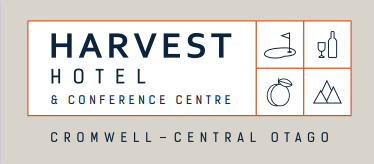Mayor’s column: Getting ready for an emergency
Mayor Tim Cadogan - Opinion
18 February 2023, 5:00 PM

The terrible earthquakes in Syria and Turkey and the devastating storms in our own country over the past couple of weeks bring home how fragile our world is in the face of Mother Nature.
Here in Central, we are as vulnerable as anyone to earthquakes, floods, fire, even - it appears - tornadoes.
If the last couple of weeks can serve to remind us of anything, it is that emergencies can happen anytime, anywhere. Having some steps in place in advance is a whole lot better than trying to come up with a plan in the middle of the night, in the middle of a crisis; so here’s a few things to think about.
Store emergency water
What would you do if you had no running water? Emergency water is the single best thing you can store to be more prepared for a major earthquake or other disaster.
The best plan is to have enough water to last for seven days.
The recommended amount of stored emergency water is 140 litres per person per week (20 litres per person per day). And don’t forget about your pets. You may also need to store more if you have unwell people or small children in your family.
Get a grab bag ready to go
A grab bag or getaway kit is a small backpack of essential items you can grab if you need to evacuate your home or workplace with little or no warning.
Have grab bags ready for everyone in your whānau or household. Each bag should have walking shoes, warm clothes, raincoat and hat, water and snack food, hand sanitiser, phone charger, cash, and copies of important documents and photo ID. It’s really important to remember any medications you might need as well!
Have a household plan in place
An emergency can happen at any time. What is your family plan if an earthquake hits while the kids are at school? How will you manage if an event cuts power and communications to your home in the middle of the night?
Having a basic plan in place will keep you safer, let you connect with your loved ones faster and protect some of your most important assets.
Consider where your meeting place will be if you are not at home when the emergency occurs. What will you do if you have no power, or must leave your home in a hurry? Where is your nearest Community Emergency Hub? Think it through before you need to think about it under pressure.
Treasure that battery
Depending on what services can operate, your phone may be your lifeline. Make sure you have torches in places you can find them, so you don’t drain your phone battery by using its light. If the phone works, limit usage to essential calls to preserve battery life if the power is out and to keep lines open for emergency calls.
Keep an old-school transistor radio with fresh batteries as part of your preparation kit so, if electricity, telecommunications and internet connectivity are lost, you can still get information. And don’t forget that your car radio can be used to keep informed too.
Be prepared to hunker down
If things really go bad, you might need to look after yourself and your family for a few days, and that risk is increased the more remotely you live. That can be a bit of a scary thought, but with some planning, it is quite achievable. Ideally, you can be self-sufficient for seven days. However, don't forget neighbours can help each other out by sharing resources, such as gas for a camping stove or barbeque.
By looking after yourself and your household, you’ll also be helping emergency services focus their limited resources on the people who are most in need of help.
Know where to get the information you need
Emergencies, particularly ones that come in a rush, are very frightening. Not knowing what is happening to deal with them adds to the worry. Have yourself prepared for how you are going to access the information you need. Local resources such as the Central Otago District Council website, the Central App and local radio are very good places to get information from. And stick to reliable sources of the truth; rumours grow legs during emergencies, just adding to people’s worry and panic.
Get to know your neighbours
Your neighbours are your first source of support in an emergency, and it’s important to get to know them. Research shows communities that recover best from natural hazards are those that have good social networks.
Reading this might not have been the most calming, relaxing way to spend five minutes, but I hope this helps you get ready. Speaking of which, if you want more advice, head to the Get Ready website.
NEWS
JOBS








